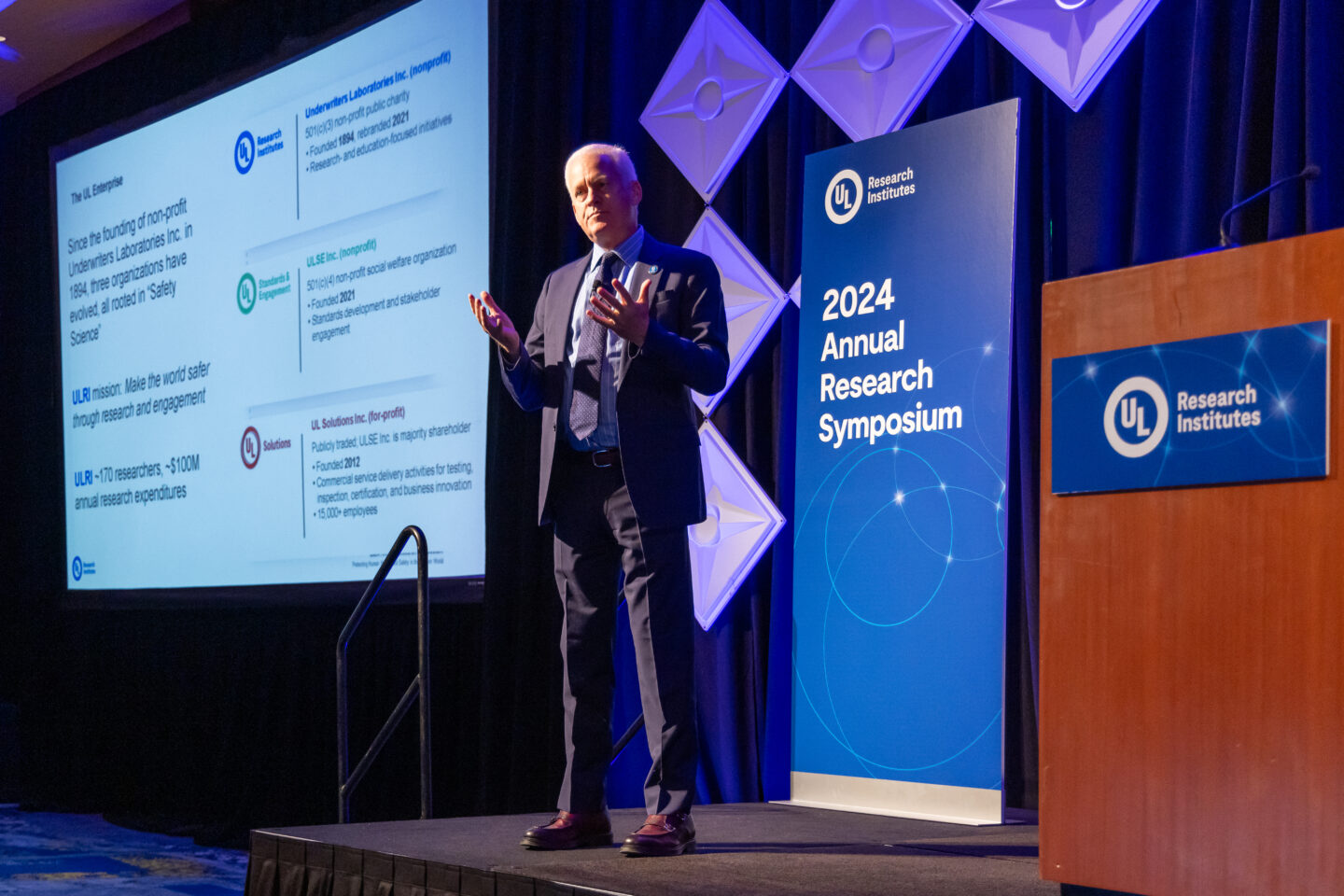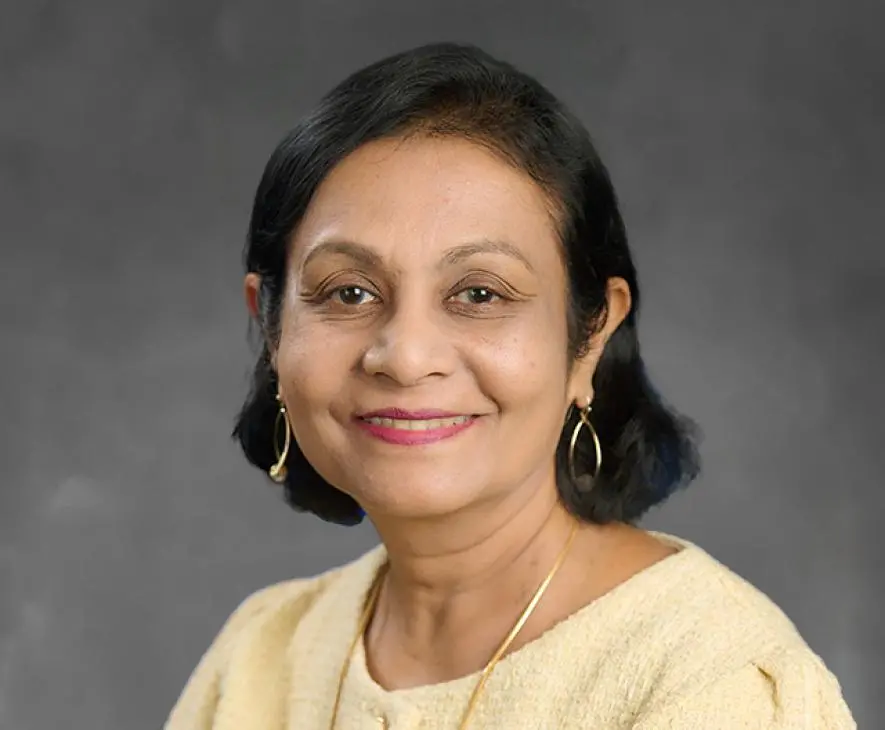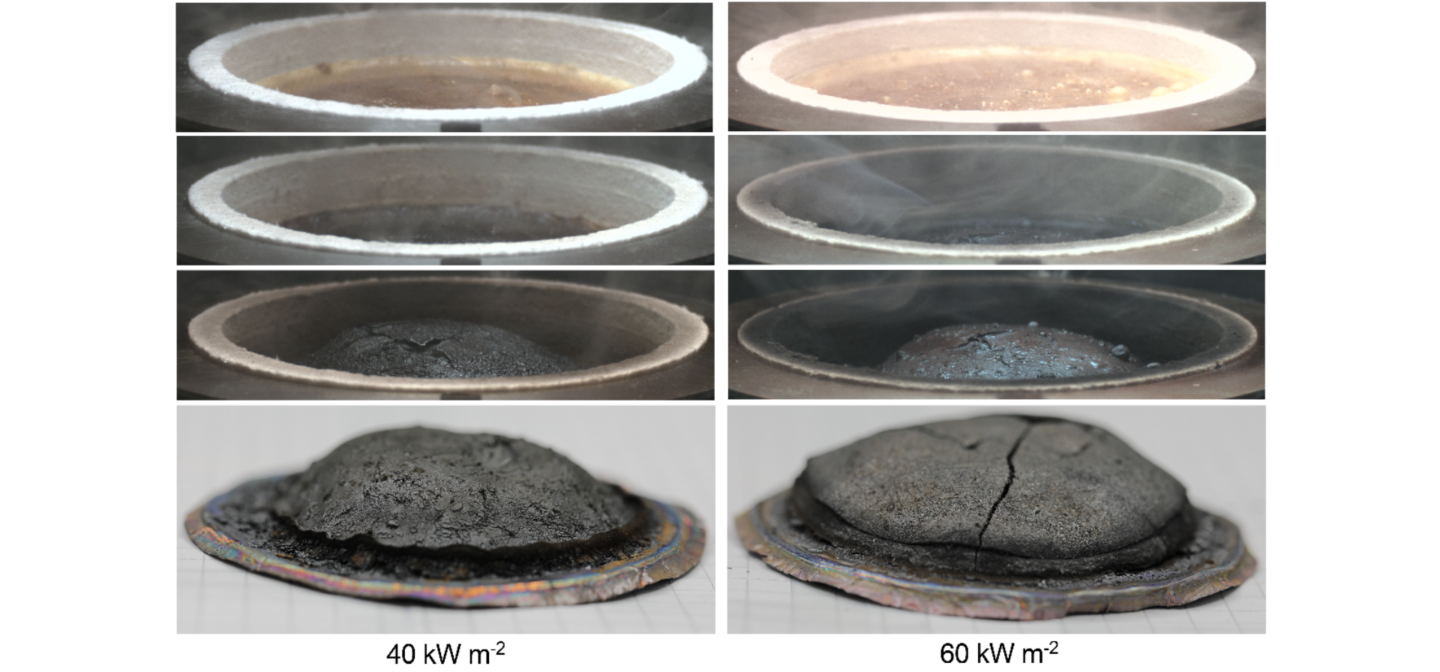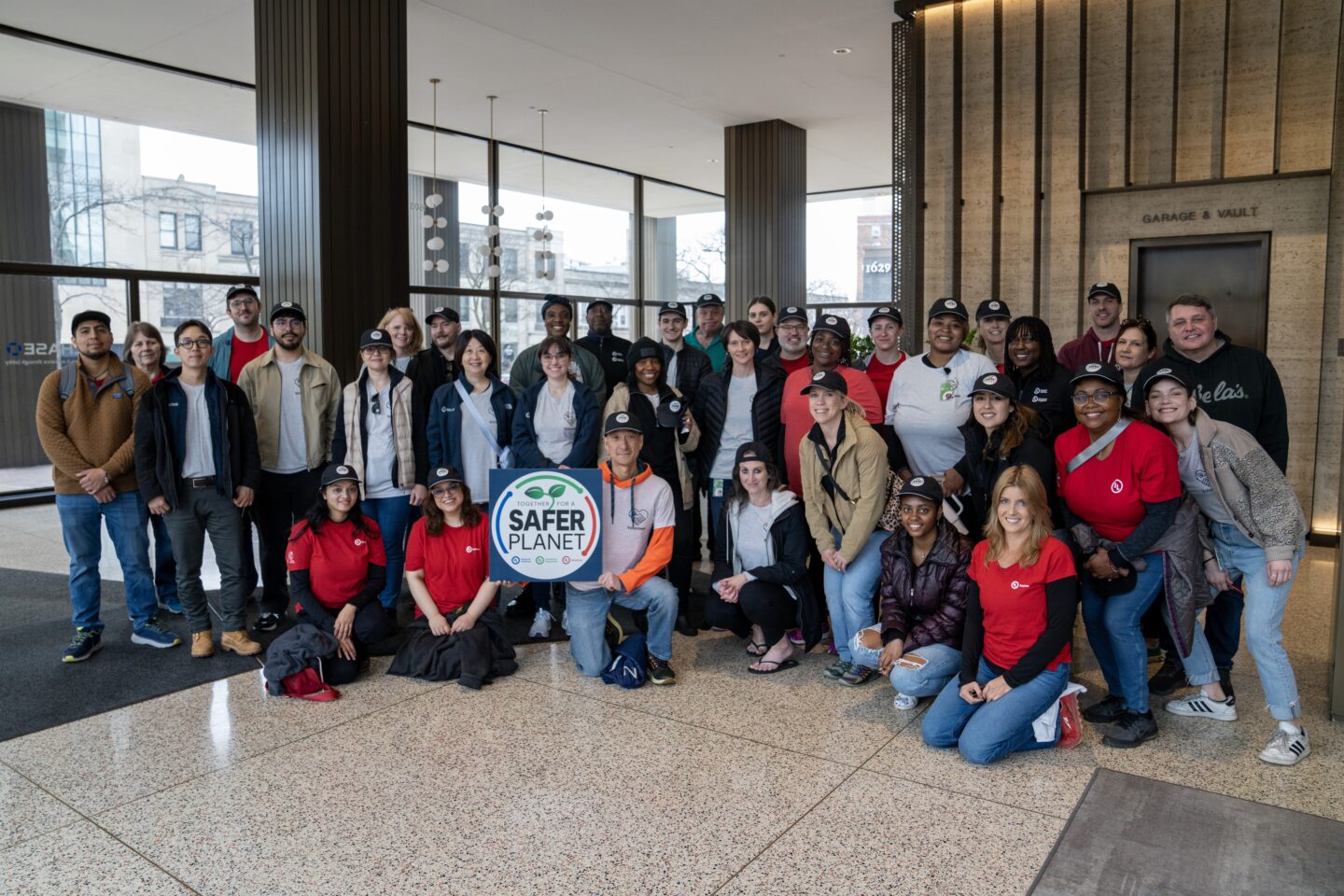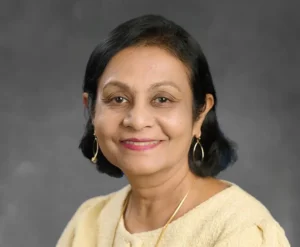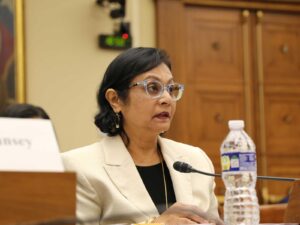
Working for a
Safer World
Our commitment
UL Research Institutes is a leading independent safety science organization with global reach. We sense and act on risks to public safety with bold hypotheses and objective investigations. Learn about our commitment to engineer a safer and more sustainable world.
Grand Challenge #1
Building Resilience for a Sustainable Future
Many solutions to climate change involve technologies that will play a vital role in driving down global carbon emissions. We are working to build safety into the design, development, and deployment of these technologies for a safer energy transition.

Grand Challenge #2
Advancing Individual and Societal Health in the 21st Century
New manufactured products and chemicals play an important role in societal progress. We are investigating the long-term impact of these chemicals on people, other species, and ecosystems.

Grand Challenge #3
Promoting Safety at the Human-Digital Interface
We are in the early stages of a technological revolution powered by digital intelligence. As we become familiar with problems in the digital ecosystem, we aim to develop new frameworks for digital safety in partnership with experts worldwide.

Features and Highlights
Newsroom
institutes and Offices
We foster and sustain public trust in our work through our commitment to independence, rigor, and transparency. Importantly, we share the knowledge we create for the public good.
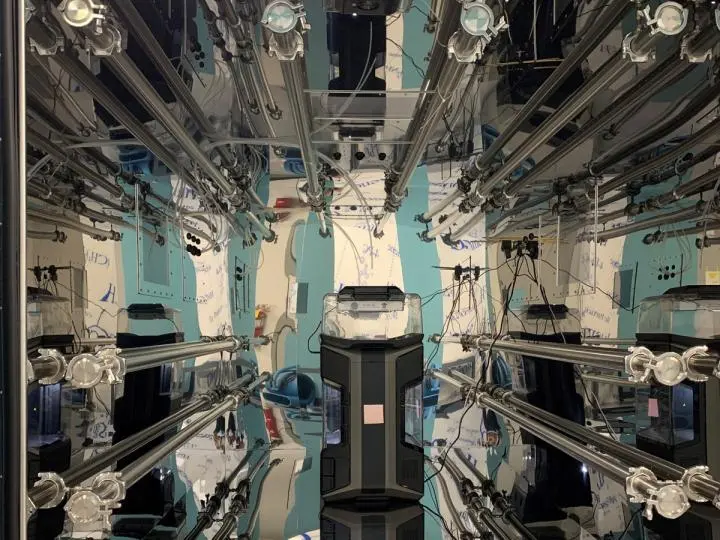

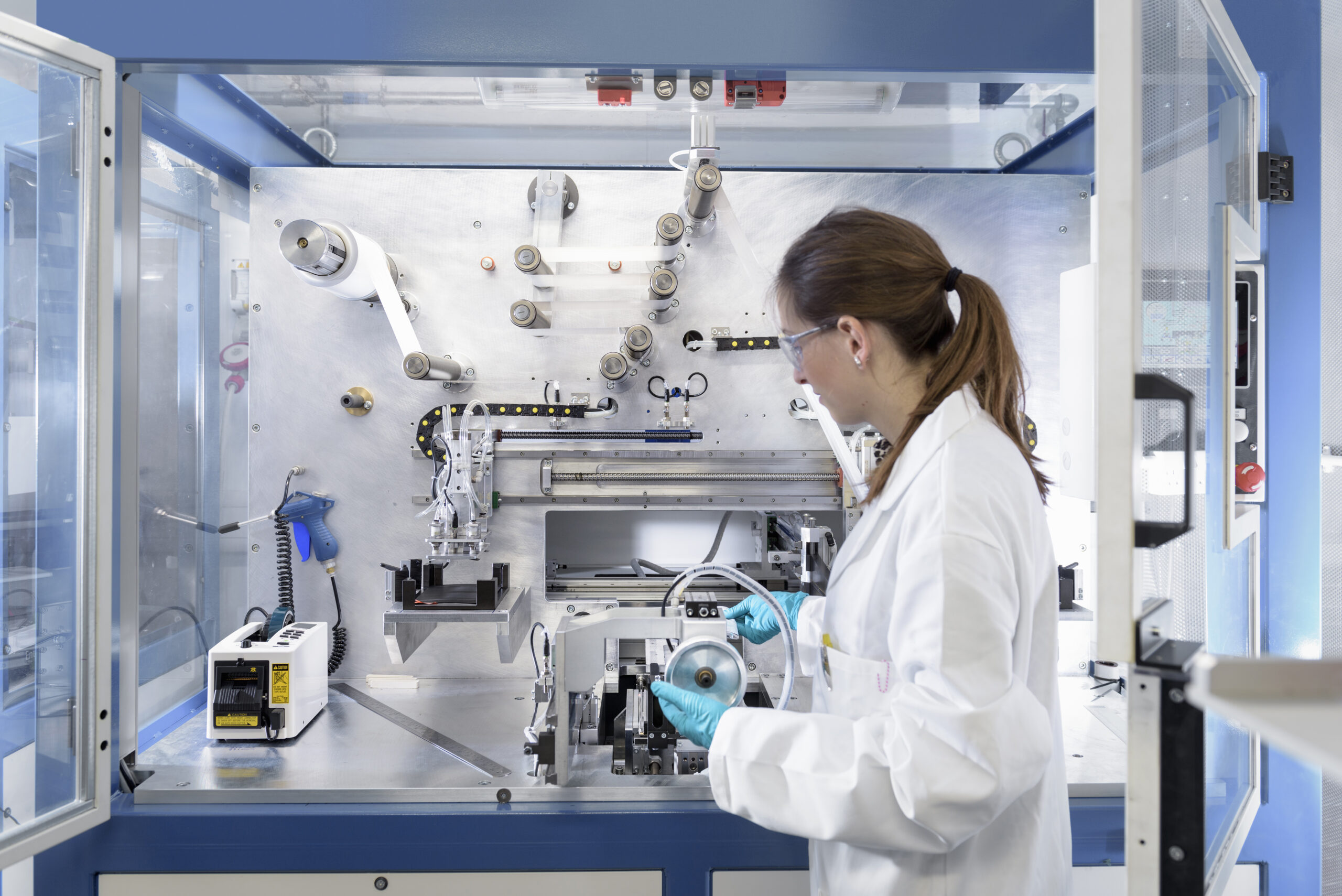

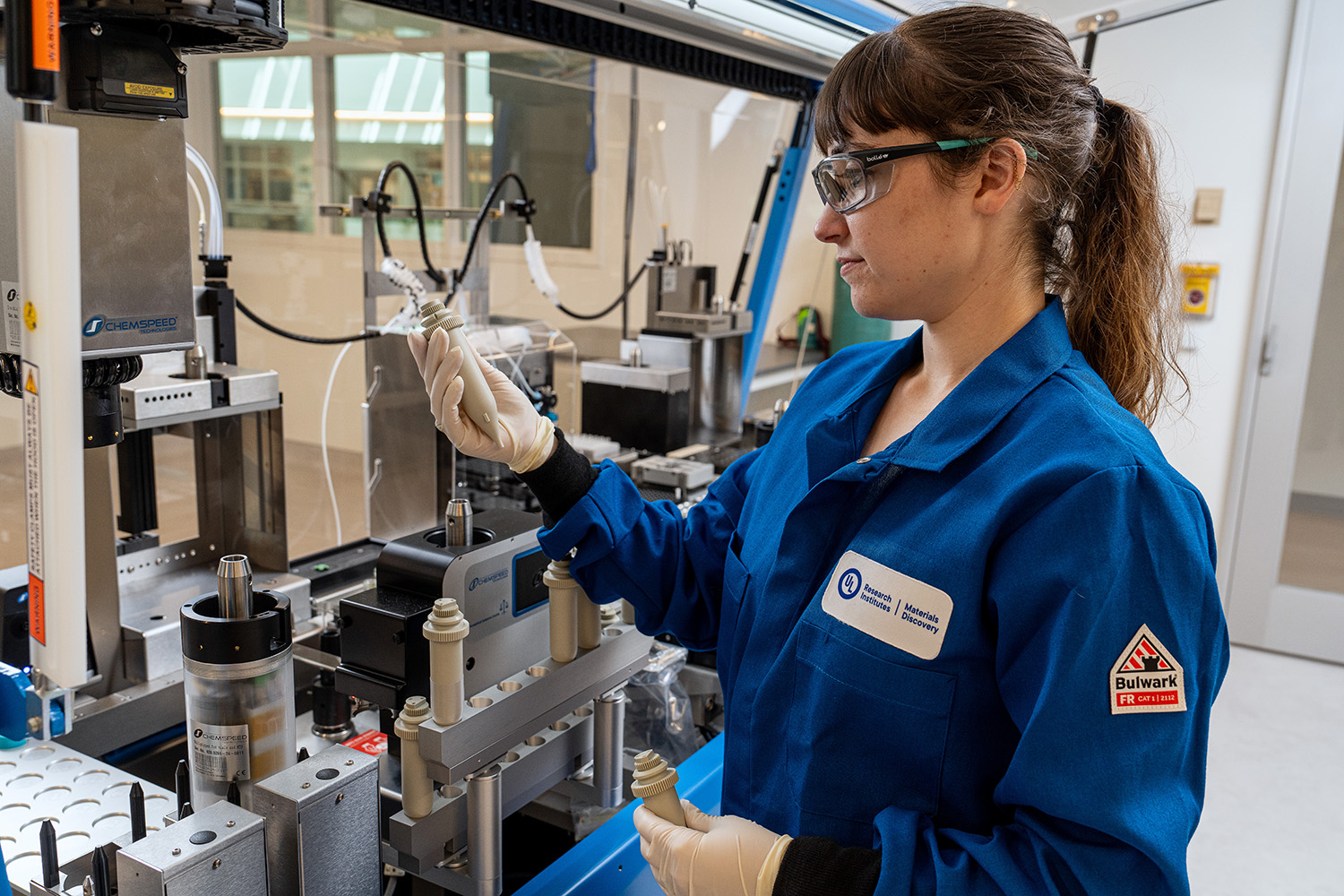

Partnerships
Everyone benefits when world-class institutions work together to take on big challenges. Join us.
Grants
We’re funding scientific research to make the world safer, healthier, and more sustainable. Learn about funding opportunities.
Careers
Work to make the world a safer place. Start a rewarding career at UL Research Institutes with other socially minded colleagues focused on innovation, collaboration, and ethics.


